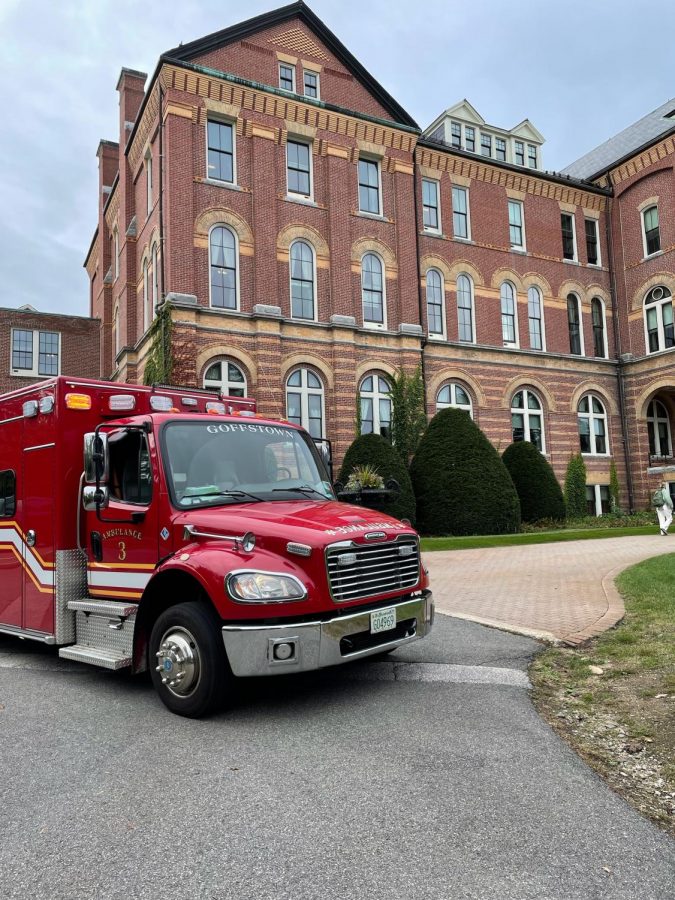How alcohol has challenged the Saint Anselm campus
Emergency vehicle outside of Alumni Hall
October 8, 2021
Partying is generally associated with college life at any school, but alcohol related incidents have been on a concerning rise compared to previous years at Saint Anselm College.
Since the start of the new school year, Saint Anselm College has seen a stark increase in the number of alcohol-related transports on campus from last year. This is in part because of the lifted restrictions, but also because of “pandemic fatigue,” wanting to make up for lost time, and academic stress.
One such lifted restriction is intervisitation, which allows students of opposite genders to visit each other in their dorms. With no limit to the number of people allowed in rooms, students have been able to party with their friends in their rooms, which often means alcohol is involved.
When asked why she drinks, one sophomore responded, “Because I didn’t get to do anything last year, so I’m making up for my Freshman year.” Sophomores wanting to make up for lost time seems to be a common trend, as the majority of alcohol-related EMS calls on campus were for sophomores.
However, it is not just the sophomore class that is drinking. Juniors and seniors share a similar sentiment of wanting to make up for lost time. Over the past year and a half, people have lost their jobs, family members, and “normal” ways of life because of the pandemic. Most people want to return to pre-pandemic life and are fed up with the restrictions.
On October 2nd, parents and students alike gathered in the parking lot for food and drinks. There was little to no mask-wearing as students and parents played beer pong and cornhole and listened to one senior’s dad play the bagpipes. Some students were even walking around handing out jello shots on a platter. The atmosphere was one that encouraged drinking.
When asked why she was drinking, one senior responded, “Because there’s nothing else to do.” Last year there was a wide range of programs provided to help people socialize in a Covid-safe way. While there are still programs happening, they seem to be fewer than last year.
Another senior responded, “Because I’m depressed.” A lot of students are feeling burnt out as they have been working nonstop for six weeks. This can lead to students exhibiting two drinking motives: enhancement (to improve positive mood) and coping (to alleviate negative affect). Both motives are associated with high levels of drinking (Nehlin & Öster, 2019). Drinking in excess can increase overall stress levels through negative consequences, such as missing class or doing something one later regrets, which can cause a positive feedback loop where a person drinks more as a result of stress.
However, there are some protective factors that can help decrease binge drinking. Mindfulness has been shown to decrease overall alcohol consumption and alcohol-related consequences by lessening the degree to which drinking-to-cope conditioned responses occur when a student is experiencing depressive symptoms (Bravo et al., 2016). Mindfulness training techniques include deep breathing, yoga, and meditation.
Social support is often overlooked as a protective factor on college campuses. It is hypothesized that social support acts as a ‘buffer’ in which more support protects against the adverse effects of stressful events.
It can be quite easy for students to drink too much at parties when they are surrounded by alcohol, drinking games, and other people drinking. Looking out for one another is a great way for everyone to drink safely and responsibly. If a friend has had too much to drink, encourage them to switch to water. Another way to drink safely is to pace yourself and keep track of how many drinks you have consumed. Lastly, know your limits. It is okay to say no.



